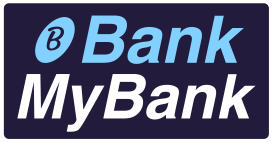Arrears Mean Payments that have not been made for products or services are referred to as “arrears.” These payments may already be past due or will not be required until after the product or service has been delivered.
Payments that have not been made for products or services are referred to as “arrears.” These payments may already be past due or will not be required until after the product or service has been delivered.
Read More: What is Taxi Insurence and How to Claim Taxi Insurence?
Examples and Definition of Arrears
Arrears may or may not refer to a past-due payment. Payments made after the fact for a good or service are also referred to as arrears. Businesses may receive arrears from customers (money that is owed and should have been paid earlier) or may make arrears payments to vendors. Employees may also be paid in arrears, which indicates that they won’t get their pay until after the pay period.
Let’s imagine that you offer company accounting services. When you bill in arrears, you wait to send an invoice or request payment until the job is finished. The consumer is not to blame for the delayed payment, and it is not late because it is your decision to operate in this manner.
Here’s another illustration: You run a small company with a few employees. Because you operate payroll in arrears, your employees receive payment after completing their tasks. Your employees’ salaries are not past due at this time. Simply for convenience’s sake, you’ve chosen to pay your staff after the pay period.
How Arrears Work
Arrears are not the outcome of past-due payments in the aforementioned situations. But in some circumstances, they might be. Imagine that your firm relies on a printing company. If you don’t make your September payment on time, your October payment will be in arrears for September.
You or others may be overdue with payments for a number of reasons. The invoice might not reach you. Perhaps you don’t properly record the invoice or don’t have the money to pay. Your payment is late if you receive a bill but don’t send it by the deadline.
If you’re in arrears with your payments, the vendor could raise your interest rate, shorten your payment terms, or restrict the amount of credit you have available to you.
Pros Explanation
Accurate payments: You lower your chance of receiving inaccurate payments when you charge in advance. If you charge customers in advance, you run the risk of overcharging or undercharging, which could result in refunds or numerous bills.
Greater flexibility: Some clients will like the flexibility of paying you after a task is finished. If they haven’t previously collaborated with you, this is especially true.
Cons Explanation
Payment delays: You can experience some cash flow problems because you won’t get paid right away for your goods or services. If you require partial or full payment in advance, your cash flow will improve.
Lost payments: Customers might not pay you if you don’t get paid until after you’ve delivered a good or service. They could forget, fail to pay their bills, or run out of money.
What Child Support Arrears Mean
In divorce situations involving child support, the word “arrears” is also employed. In order to cover the costs of child care, child support mandates that the noncustodial parent—a parent who does not have physical custody of a minor child in a divorce—pay the custodial parent a specific sum of money.
The noncustodial parent becomes in arrears if they miss one or more payments for child support. When this occurs, the custodial parent may file a lawsuit to obtain any unpaid child support that is owed.
Read More: What is Auto Sweep Facility and its Benefits?
Unassigned Arrears vs. Assigned Arrears
Assigned and unassigned child support arrears are the two different categories.
Unpaid child support payments that are assigned arrears are those that go to the state so they can assist a child financially. Because the custodial parent in this case did not receive the child support they required to care for their child, they turned to public help.
Arrears that haven’t been designated must be paid straight to the custodial parent. They come into effect if the custodial parent, who is entitled to receive all unpaid child support, chooses not to apply for government help.
The custodial parent may submit a waiver to request the forgiveness of past-due child support obligations. Check the legislation in your state regarding child support arrears and waivers as each state has different child support regulations.
Major Points
The position of payments in relation to their due dates is referred to as being in arrears.
It’s frequently used to refer to a payment that’s past due or won’t become due until after a good or service has been rendered.
You can have clients who pay you in arrears or you might owe money to suppliers or staff members.
Child support payments that are past due are referred to as being “in arrears” in family law.





